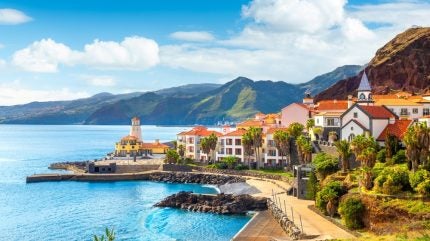
The Portuguese hotel sector has demonstrated remarkable resilience, even as rising interest rates since 2022 have challenged the broader European real estate market.
In 2024 alone, Portugal welcomed a record 31.6 million tourists, with commercial property investment rising 28% to €2.2 billion—of which hotels accounted for about a fifth. Foreign investors made up 74% of total investment in the sector, underscoring Portugal’s growing international appeal.

Discover B2B Marketing That Performs
Combine business intelligence and editorial excellence to reach engaged professionals across 36 leading media platforms.
Portugal’s tourism surge has not only boosted visitor numbers but also sparked a significant upswing in hotel sales and investments. The country’s rich cultural heritage, pleasant climate, and diverse landscapes continue to attract travellers from around the world.
This sustained demand for accommodation is driving hotel owners and developers to capitalise on growth opportunities, making Portugal one of the hottest markets for hospitality real estate in Europe.
A rising tide lifts hotel investments
Portugal’s impressive tourist influx has created a favourable environment for hotel investments, attracting both domestic and international buyers. Despite broader economic uncertainties and rising borrowing costs across Europe, Portugal’s hotel property market remains buoyant.
The country’s government policies encouraging tourism development and streamlined licensing processes have played a role in facilitating growth within the sector.

US Tariffs are shifting - will you react or anticipate?
Don’t let policy changes catch you off guard. Stay proactive with real-time data and expert analysis.
By GlobalDataThe Algarve region, Lisbon, and Porto are among the top destinations where hotel sales have surged. The Algarve, famous for its beaches and golf resorts, continues to be a magnet for luxury hotel investments, while Lisbon and Porto appeal to urban travellers seeking cultural experiences.
These areas have witnessed a spike in hotel transactions, reflecting investors’ confidence in Portugal’s long-term tourism potential.
International interest is particularly strong, with investors from the UK, France, Spain, and the United States leading the way. The country’s competitive pricing, relative to other European hotspots like Spain and Italy, combined with its stable political climate, adds to its appeal.
As a result, hotel assets in Portugal are becoming highly sought after, with many investors focusing on refurbishment projects to enhance property value and cater to evolving guest expectations.
Changing traveller preferences and hotel demand
Shifts in traveller behaviour are influencing the types of hotels in demand across Portugal. Post-pandemic, there is a growing preference for sustainable and experiential tourism, with visitors seeking authentic and environmentally responsible stays.
This trend is encouraging hotel operators and developers to innovate, offering eco-friendly accommodation options and unique local experiences.
Boutique hotels, heritage properties, and rural lodges have gained popularity, particularly in lesser-known regions such as Alentejo and the Douro Valley. These alternatives to traditional large hotels cater to tourists looking for intimate, personalised stays that showcase Portugal’s culture and natural beauty.
This diversification in accommodation types is broadening the market and supporting further hotel sales in regions outside the main urban and coastal hubs.
Technology integration is another factor shaping hotel demand. Smart hotel features, contactless check-ins, and enhanced hygiene measures have become standard expectations, particularly among younger travellers.
Investors who recognise the importance of modernising their properties to meet these requirements are more likely to attract steady bookings and command premium rates, thereby increasing the value of their hotel assets.
Long-term prospects for Portugal’s hotel market
The long-term outlook for Portugal’s hotel market remains positive, supported by sustained tourism growth and robust investment interest.
Analysts predict that international arrivals will continue to rise steadily, driven by improved air connectivity, expanding marketing efforts, and Portugal’s reputation as a safe and attractive destination.
Government initiatives aimed at promoting sustainable tourism and regional development will further diversify Portugal’s hotel landscape, encouraging investments beyond the established centres.
Infrastructure improvements, such as upgrades to airports and transport networks, are also expected to enhance accessibility and visitor experience, which in turn will bolster hotel occupancy rates and profitability.
Despite potential challenges, including economic fluctuations and global travel uncertainties, Portugal’s hotel sector has shown an ability to adapt and thrive. Its unique blend of cultural appeal, natural assets, and investor-friendly environment positions it well for continued growth.
For investors, hoteliers, and travellers alike, Portugal represents a compelling market with enduring opportunities.





